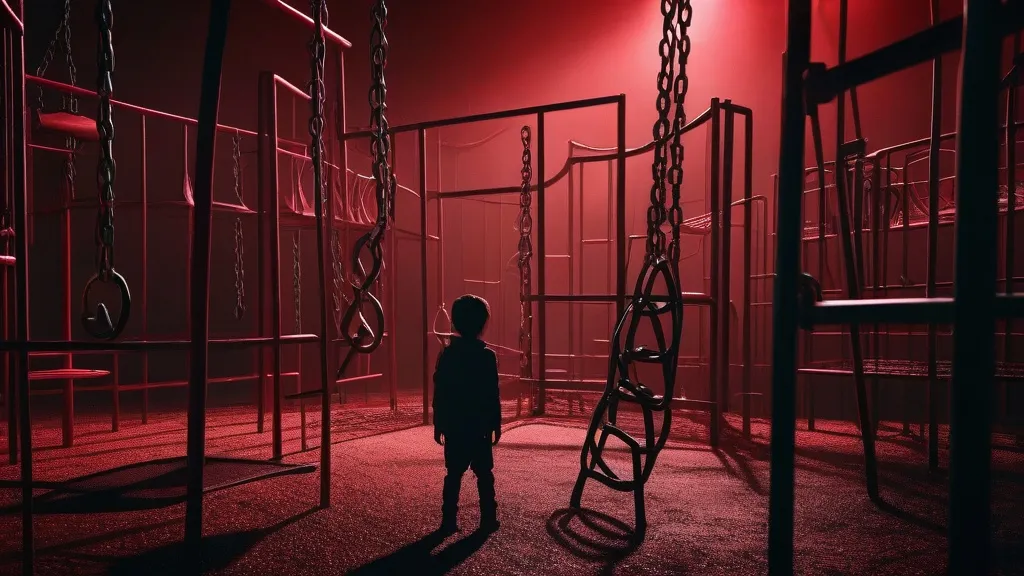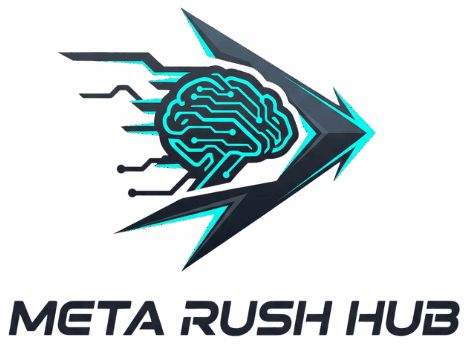People keep asking me is squid games based on a true story. Short answer? Kind of no, kind of yes, which I know sounds like a cop-out. But listen. In my experience, the “Squid Game real story” question is really people asking if this wild show was inspired by true events, real debt, real survival games, all that human mess. And yes, the show pulls from real feelings, real money stress, real social pressure. Not actual murder playgrounds. But the spirit? Real enough to sting.
Why people ask this in the first place

When something hits that close to home, we go hunting for proof. We want to know if someone truly did this. Or if the writer lived through it. I’ve always found that “based on a true story” is code for “please tell me I’m not crazy for seeing my life in this.”
I got hooked on the show for the same reason you did: it’s fun, scary, and weirdly familiar. You don’t need to know game theory to feel that tug. But if you want basics and a clean summary, the Squid Game overview lays out what the show is without the memes.
I’ve been writing about games, design, and why humans do dumb things for prizes for over a decade. If you’re new to my corner of the internet and wondering who I am and why I care, this little page explains my whole deal: about this blog and me.
What “based on a true story” usually means
Let me cut through the fog. When people say a movie or show is “based on a true story,” sometimes it’s 90% fiction and 10% mood. It’s not a lie. It’s marketing. With Squid Game, the creator pulled from real social pressure in South Korea, personal debt, and the feeling of being cornered by money. Emotionally true. But not a documentary.
What the creator actually said (and why it matters)
Hwang Dong-hyuk, the writer and director, has talked about how his own financial struggles and the economic vibe in the late 2000s shaped the thing. If you want the dry bio plus receipts, check the Hwang Dong-hyuk page.
In interviews, he’s said he got the idea years before it aired. He shopped it around. Got rejected. Then the world slid further into debt, gig work, and that “I’ll sell my soul for rent and a nap” feeling, and people were finally ready to watch it. Art waited for the moment. Nasty but true.
The real-world fuel: debt, inequality, and games people play
No, nobody is legally hosting playground deathmatches in Seoul. But yes, many folks face real debt, brutal competition, and a system that rewards winners and forgets losers. That’s not just a Korea thing. That’s everywhere. The unfairness is the star. Not the fake guns.
I’ve seen the same energy in free-to-play design. Make the reward look close. Make the cost look small. Nudge, nudge, nudge. When I wrote about the cognitive loops that keep people in the arena, I went deep on it here: the psychology of game design.
Was it inspired by other works?
Absolutely. Every creator breathes other stories first. Squid Game sits in the same family tree as Battle Royale, Kaiji, and yes, The Hunger Games. The twist is childhood games plus class anxiety plus that very Korean mix of sincerity and despair. It hits because it feels like a parody of capitalism without the laugh track.
Is it literally real? No. Is it emotionally real? Too real.
Look, nobody is recruiting broke folks to run Red Light, Green Light with snipers. But the show steals the bones of reality. Debt collectors. Competitive stress. The exhausting climb for a tiny chance at a huge payoff. That’s why your brain keeps yelling “this could be me” and then you hate yourself a little for thinking it.
“But my cousin said there’s a real Squid Game in Korea”—stop.
Every cycle, there’s a rumor like this. And there’s also the Netflix reality spin-off where contestants compete for money without the bloodbath. It’s TV trying to ride the wave. Reality shows mimic the surface of the show—alliances, betrayals, weird challenges—but it’s still just television. No one’s dying for prize money on camera. Not literally.
If you want to see where this kind of social design pops up in the real world of online play, I keep notes and rants over here: multiplayer trends. Group dynamics get spicy fast when stakes feel huge and rules feel unfair.
Fiction vs reality: quick comparisons
- Recruiters in subways with slap games
- Show: Slick mystery man, perfect timing, cinematic slap.
- Real world: Recruiters exist, but they offer credit cards or MLMs, not death tournaments.
- Children’s games as deadly trials
- Show: Symbolic, nostalgic, horrifying.
- Real world: Childhood games still teach power, teamwork, and rule-bending. No snipers though.
- Masked guards and VIPs
- Show: Cartoon-level opulence and secrecy.
- Real world: Rich people love exclusive clubs. Masks optional, NDAs required.
- Winner-takes-all jackpot
- Show: Life-changing money in a glass piggy bank.
- Real world: Lotteries, venture funding, and “unicorn or bankruptcy.” Same energy, fewer coffins.
- Player agency vs rigged system
- Show: Players feel in control until they don’t.
- Real world: Most “choices” are pre-filtered by money and access. You know this.
Personal note: I once built a tiny “survival” prototype
Years ago, during a frantic game jam, my team built a social survival prototype. No blood. Just time pressure and resource trading. People lied within 10 minutes. Alliances formed by who looked the least tired. The meta was bananas. I’ve written a bunch of nerdy breakdowns like that here: game dev insights.
The tech vibe: masks, cameras, and “AI” everywhere
We love to act like the masked guards are backed by hyper-advanced AI. In reality, most “smart” systems in games are smoke, mirrors, and a schedule. I ranted about that exact illusion here: game AI is smoke and mirrors. Squid Game pretends omniscience for drama. Your favorite games do it for UX.
Why it feels too real even when it’s not literal
Because the show peels back the polite layer. It shows what “fair” looks like when fairness is designed by people who don’t need it. When players lose, it’s their fault. When they win, the system worked. That’s the lie we tell ourselves to get through the week.
The creator’s lens
I keep thinking about Hwang’s timing. He wrote it long ago. The world had to catch up. That lag is the story. Art didn’t change. Our pain did. And now everyone sees themselves in that green tracksuit, sweating next to the line, hoping the doll doesn’t turn around too fast.
Okay, so… is squid games based on a true story?
Here’s my cleanest answer I can live with: no, it’s not based on a specific true story with names and addresses. But it’s inspired by true pressures, the kind you and I feel when the bills pile up and the rules feel like a scam. If someone asks you is squid games based on a true story at a party, say “not literally, but it’s about how money makes people do wild things.” Then sip your drink and avoid a TED Talk.
How the show uses game design ideas (and why that matters)
I have a screenwriter friend who hates when I pause shows to explain the mechanics. I can’t help it. Here are the big hooks:
- Clear rules, simple goals. Players understand the win condition fast.
- Variable reward schedule. Sometimes you get a win. Sometimes, pain.
- Public visibility. Shame and pressure amplify risk-taking.
- Time pressure. Bad decisions love a countdown.
- Resource scarcity. When everything feels limited, people turn.
“Text tables” you can read fast
What drives the players (my take)
- Primary Motivation: Escape debt, secure dignity
- Secondary Motivation: Status in group, survival advantage
- Design Lever: Nostalgia weaponized as ruleset
- Psych Trigger: Loss aversion > hope of gain
- Audience Hook: “What would I do?” self-insert fantasy
Fiction beats vs real-world parallels
- Recruitment Scene: Glossy, cinematic offer
- Parallel: Predatory lending, gambling apps, shady contracts
- Deadly Contest: High stakes with simple rules
- Parallel: High-risk jobs, gig work with penalties, burnout lotteries
- VIP Spectacle: The rich as bored consumers
- Parallel: Financial markets treating life as content
- Final Choice: Morality vs survival
- Parallel: Compromise for rent, ethics bent by necessity
Why people keep Googling “Is Squid Game real?”
Because people are tired and in debt. Because the show makes that pain look like a carnival where someone finally yells the quiet part. Also because humans love sensational rumors. If someone DMs you a “secret video” from a “real Squid Game,” it’s either a reality show, a prank, or a brand trying too hard.
If you want the plain-vanilla explainer from a neutral source, this one is fine for reference: Squid Game entry.
The “hard truth, soft voice” answer I give my younger cousins
No, there isn’t a real Squid Game. But you’re right to feel like things are unfair. Money plays god in a lot of rooms. That’s why people cling to luck, lotteries, crypto spikes, or miracle jobs. Power sells hope in small, expensive doses.
Industry in-joke corner (because I can’t help myself)
Every time someone says “skill-based” I hear “we tuned the matchmaking so your dopamine spike lands at minute 12.” If the guards in the show were game devs, the marbles game would have rubber-banding and the tug-of-war would secretly boost the losing side’s morale for retention. I say that with love. And a little sigh.
A few more nerdy bits before I shut up
Story and systems teach the same lesson from different angles. One gives you feelings. The other gives you loops. If you want to see how deep those loops go, this piece is my favorite rabbit hole right now: how design nudges behavior. Yes, I linked it twice. Yes, it’s that useful.
Common myths I keep hearing
- Myth: “It’s based on a secret Korean scandal.” Reality: No verified case. It’s a fictional parable.
- Myth: “All the games are historically accurate.” Reality: The games are stylized mashups with symbolic weight.
- Myth: “AI runs the arena.” Reality: In fiction, yes. In real production, human scheduling does 90% of the work.
- Myth: “The VIPs represent exact real people.” Reality: They’re archetypes, not IDs.
- Myth: “Anyone can win if they try.” Reality: Systems choose winners before players show up. Ouch, I know.
If you’re writing, designing, or just arguing at brunch
- Ask what the rules encourage, not just what they say.
- Track how shame and visibility change choices.
- Remember that “fair” is usually someone’s brand, not a law of physics.
- Use simple rules to expose complicated behavior. Works every time.
- Test your design with tired people. That’s when the truth shows up.
My quick, messy “table” of origins (no fancy grid, just facts)
- Core Theme: Inequality, debt, commodified suffering
- Format Choice: Childhood games as moral X-rays
- Story DNA: Battle Royale + Kaiji + late-capitalism dread
- Tone: Candy-colored nightmare, slow-burn panic
- Audience Hook: “What would I do?” self-test under pressure
- Why Now: Global debt, gig economy, attention market exhaustion
If you want more of my takes
I pile these kinds of breakdowns into one place so I don’t spam your feed. If you’re in the mood to go deeper on craft and systems, here’s the pile: my game dev insights category.
Loose ends people argue about at 2 a.m.
The VIPs are caricatures. That’s the point. The players aren’t dumb; they’re trapped. The games aren’t fair; they’re “fair.” The difference is the smile. You can argue that forever, but I won’t because I like sleep and my tea is cold now.
Tiny case study: the marble game
Designers love the marble game because it’s player-authored. Pick your rules. Pick your lie. That choice turns friends into enemies without an external villain. That’s not “true,” it’s truer than true. It’s what happens when the system makes betrayal efficient.
What I think it all adds up to
Squid Game isn’t a confession. It’s a mirror. It says, “Here’s what you’d do with the right push.” Not a great feeling. But cathartic if you like your truths loud and a little neon.
Nutshell answers for the impatient
- No, there’s no verified real death game it’s based on.
- Yes, the creator pulled from real debts and social stress.
- Yes, other works influenced it. That’s normal.
- No, the AI isn’t real. It’s story magic and scheduling.
- Yes, it’s a sharp take on money, power, and shame.
If you’re new here and curious how I approach all this without turning it into a pitch deck, this page sums up my vibe: who I am and why I write.
FAQs (the questions my DMs keep seeing)
- Is it true Squid Game copied a real event? — No. It riffs on real feelings and social problems, not a specific event.
- Did the creator admit it was based on his life? — He’s said he drew from personal financial stress, not a literal game. Big difference.
- Is there a real version people can join? — There’s a reality TV spin-off with games and drama, not danger. TV, not crime.
- Why do the games feel so believable? — Simple rules plus high stakes mirror real life. Jobs, school, money—same math, nicer lighting.
- So… should I tell my friends it’s “true”? — Tell them it’s emotionally true, not historically true. Then talk about why it hit you.
Anyway, that’s where I land today. Ask me tomorrow and I’ll probably say it shorter, with more coffee and fewer morals.

James Carter: Your competitive edge. I cover Patch Notes, Speedruns, Battle Royale Strategy, Multiplayer Trends, and Game Dev Insights. Let’s get into it!




Oof, wild how close fiction is to real life. Makes the games hit different when you know it’s not just made up 😳
Is the emotional truth of Squid Game more impactful than if it were based on a true story?